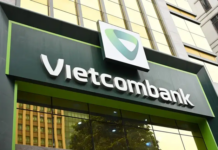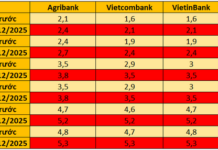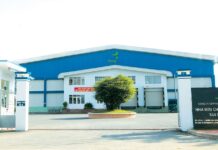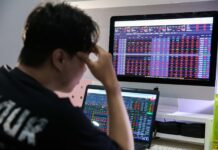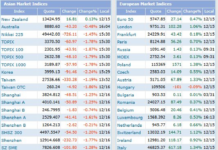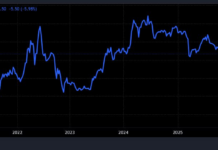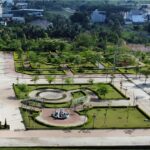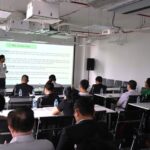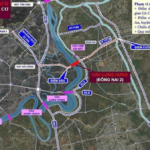In the past year alone, global tech giants like Microsoft, Meta, Alphabet, and Amazon have invested over $200 billion in data centers and AI-related tools.
Vietnam Poised to Outshine Tech Giants
Vietnam’s data center industry is attracting significant global investment, with numerous large-scale projects indicating its potential to become a new regional hub in Southeast Asia.
Recently, Samsung C&T and CMC Corporation announced a $1.3 billion investment to build a large-scale data center in Ho Chi Minh City, starting with an initial 30 MW phase and expanding to 100 MW.
Google is also considering investing in a hyperscale data center near Ho Chi Minh City, marking the first major U.S. tech project in Vietnam.
According to Reuters, the center could launch as early as 2027, supporting Google Cloud services and the rapidly growing YouTube user base in Vietnam.
This project underscores confidence in Vietnam’s maturing digital economy.
This investment wave highlights Vietnam’s emergence from the shadow of regional leaders like Singapore and Malaysia. With a total capacity of 51 MW across two major centers (Hanoi and Ho Chi Minh City), compared to Singapore’s 1 GW, Vietnam stands as one of Asia’s most promising markets.
As Singapore pauses new data center permits, Vietnam gains traction with low energy costs, renewable energy access, and a rapidly digitizing population of 97 million.
John Dinsdale, Chief Analyst and Research Director at Synergy Research Group, notes: “Singapore leads but faces growth constraints. Malaysia and Indonesia are growing rapidly.”
Thailand and the Philippines have more developed data center markets but lack the explosive growth seen in Malaysia and Indonesia.
Despite slower regional growth, Vietnam’s strong fundamentals make it attractive for data center investors, Dinsdale adds.
Jones Lang LaSalle Vietnam (JLL) reports Hanoi and Ho Chi Minh City’s data center capacities at 15 MW and 36 MW, respectively, trailing Bangkok (72 MW), Manila (74 MW), Jakarta (250 MW), and Kuala Lumpur (149 MW), signaling vast growth potential.
Viettel’s Data Center in Hoa Lac Hi-Tech Park, Hanoi
Le Thi Huyen Trang, JLL Vietnam’s Country Manager, cites strong demand driven by rapid economic growth, a tech-savvy young population, and high smartphone penetration. Vietnam’s low commercial electricity rates and high renewable energy share are key advantages for sustainability-focused operators.
Combining cost efficiency with sustainability, Vietnam gains a competitive edge as global tech firms expand beyond Singapore, where new construction permits are halted, driving investment to neighboring markets.
The government’s Power Development Plan VIII outlines clear renewable energy and grid upgrade goals, supporting energy-intensive sectors like data centers.
Ho Chi Minh City and Hanoi in Focus
Steve Lim, NTT’s Senior Vice President of Marketing and Market Strategy, notes Vietnam’s rapid scaling but highlights infrastructure limitations.
Power grids and network infrastructure are concerns, with peak-season overloads and limited undersea cable capacity.
“Significant upgrades are needed for large-scale projects,” Lim says. “Southern regions like Ho Chi Minh City are more stable for new projects, while the North faces higher risks due to grid disruptions.”
Network resilience is critical. Vietnam relies heavily on limited undersea cables, with outages causing severe service disruptions.
“Ho Chi Minh City remains the primary hub due to its economic scale and connectivity, with Binh Duong and Hanoi emerging as secondary locations,” he adds.
Vietnam also offers relatively low commercial electricity rates and a high renewable energy share in its energy mix.
“Data centers require substantial power and stable grids, along with strong sustainability commitments. Access to renewable energy is a major advantage, especially amid global climate concerns,” Trang explains.
She adds that Vietnam is well-positioned to offer diverse energy contracts for large data center users, backed by strong government support.
“Comparing Vietnam to other Southeast Asian nations, we see a market ready for robust, sustainable growth, supported by favorable macro and demographic factors,” Trang concludes.
“The Elusive Octopus: Chairman of Cong Minh Greenery Company Wanted for Special Investigation”
Mr. Nguyen Cong Minh, Chairman of the Board of Directors of Cong Minh Greenery Corporation, has been placed on a special wanted list. Cong Minh Greenery Corporation and its business ecosystem have secured numerous contracts across various provinces and cities.
Comprehensive Joint Statement: Vietnam-U.S. Agreement on Reciprocal, Fair, and Balanced Trade
The United States of America (USA) and the Socialist Republic of Vietnam (Vietnam) have reached a consensus on the Framework for a Reciprocal, Fair, and Balanced Trade Agreement. This agreement aims to strengthen bilateral economic ties, fostering enhanced market access for each country’s exports. Building upon the longstanding economic relationship between the two nations, the Reciprocal, Fair, and Balanced Trade Agreement will expand upon existing foundations, including the U.S.-Vietnam Bilateral Trade Agreement signed in 2000 and effective since 2001.







